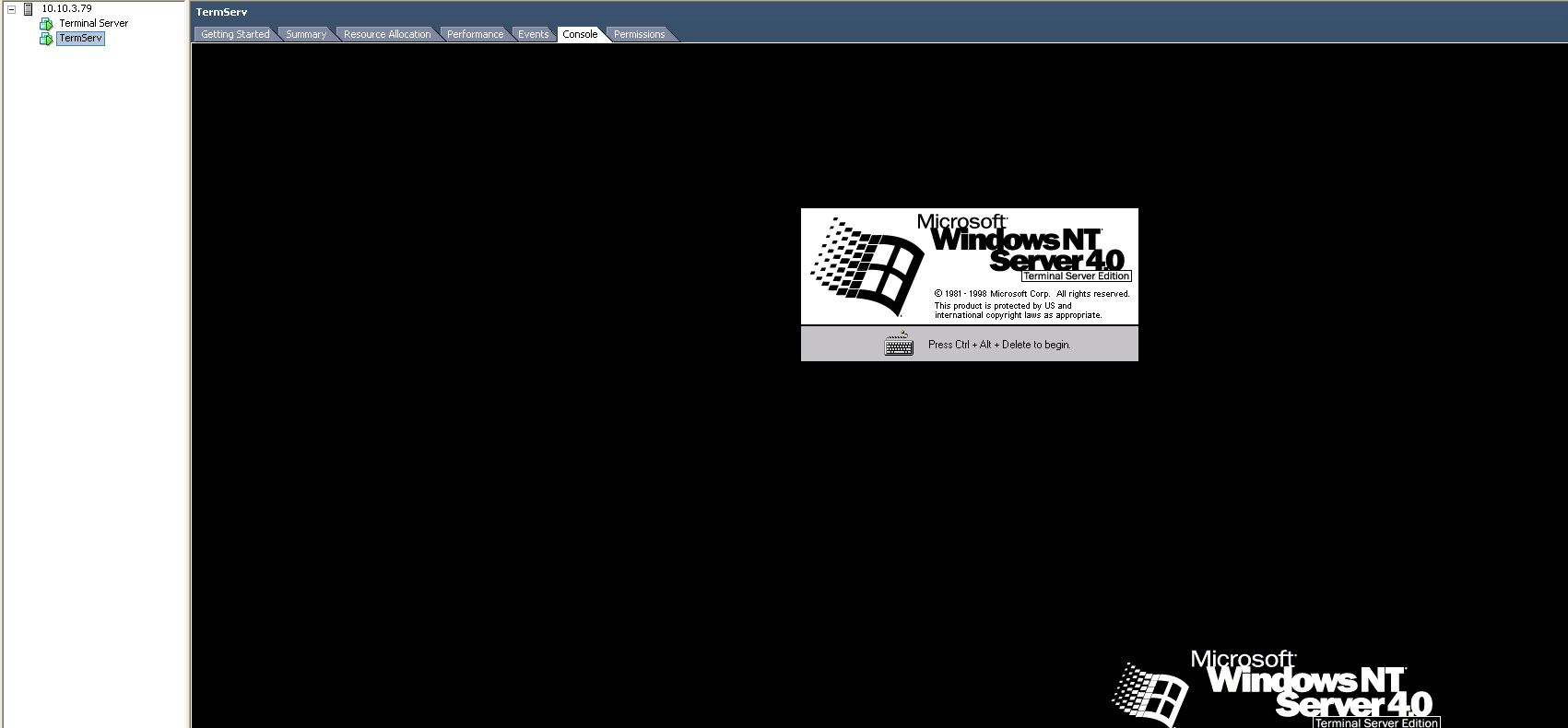
- #Vmware tools for windows nt install
- #Vmware tools for windows nt driver
- #Vmware tools for windows nt manual
- #Vmware tools for windows nt software
Shut down Windows NT and power off the virtual machine. If networking was disabled at the time you installed Windows NT, you can enable it after installing the operating system. In addition, note that if you have a Windows NT 4.0 guest with a SCSI virtual disk, you cannot add both an additional SCSI disk and an IDE disk to the configuration.Įnabling Networking After Installing Windows NT Then use the configuration tools in your VMware product to add the additional disks. To set up a virtual machine running Windows NT 4.0 and using multiple disks, you must first create a virtual machine with only one disk. Setting up a Windows NT 4.0 Guest with Multiple Disks

#Vmware tools for windows nt manual
For details, see the manual for your VMware product.
#Vmware tools for windows nt install
Note: DMA is always enabled on SCSI virtual disks.īe sure to install VMware Tools in your guest operating system.

Then boot the virtual machine with Windows NT, run DMACHECK and enable DMA for channel 0 only. If you have a virtual disk and a CD-ROM attached as master and slave to the primary IDE controller (channel 0) and you want to enable DMA, power off the virtual machine and use the Configuration Editor to move the CD-ROM to the secondary IDE controller (channel 1) at IDE 1:0. Enabling DMA for such a configuration causes an error. Note: The DMA option should not be enabled for any IDE channel that has a CD-ROM drive configured for it. Once the virtual machine is running Windows NT, insert the SP3 or SP4 CD in the drive, run DMACHECK.EXE from the \SUPPORT\UTILS\I386 folder on the CD and click the Enabled option for the IDE controller/channel that is configured with the virtual disk (typically channel 0 only, unless you have the virtual machine configured with multiple virtual disks). You need the NT Service Pack 3 or 4 CD to enable this option. You can enable the feature after installing Windows NT.

This guest operating system is supported on the following VMware products: Terms of Use Your California Privacy Rights Privacy Accessibility Site Map Trademarks Glossary Help Installing Guest Operating Systems
#Vmware tools for windows nt driver
Then other option is similar to the second option only after imaging P2V boot the VM with appropriate ISO Image and manually inject the necessary Mass Storage Controller and Keyboard Driver and Windows Registry Settings to enable the VM to boot and then install VMware Tools.© 2021 VMware, Inc.
#Vmware tools for windows nt software
Not saying I recommend that however it's an option and if you do choose that route then make sure the SHA1 checksum is: 29ed0cc664df0a7caba542ad1d3e18eb3aed4e96Īnother option might be to use imaging software to create an image of the pHDD to a vHDD in a VM and then see if Converter can process the imaged VM to boot properly and install VMware Tools. The obvious one is since VMware-converter-3.0.3-89816.exe is no longer available for download from VMware nonetheless it can be downloaded from elsewhere. It's a physical Windows NT machine that I need to convert to a VM. Glenikins wrote: I've checked this and v4.0.1 does support Windows NT (SP6) but only for a virtual machine source, not for a powered-on physical machine conversion.


 0 kommentar(er)
0 kommentar(er)
